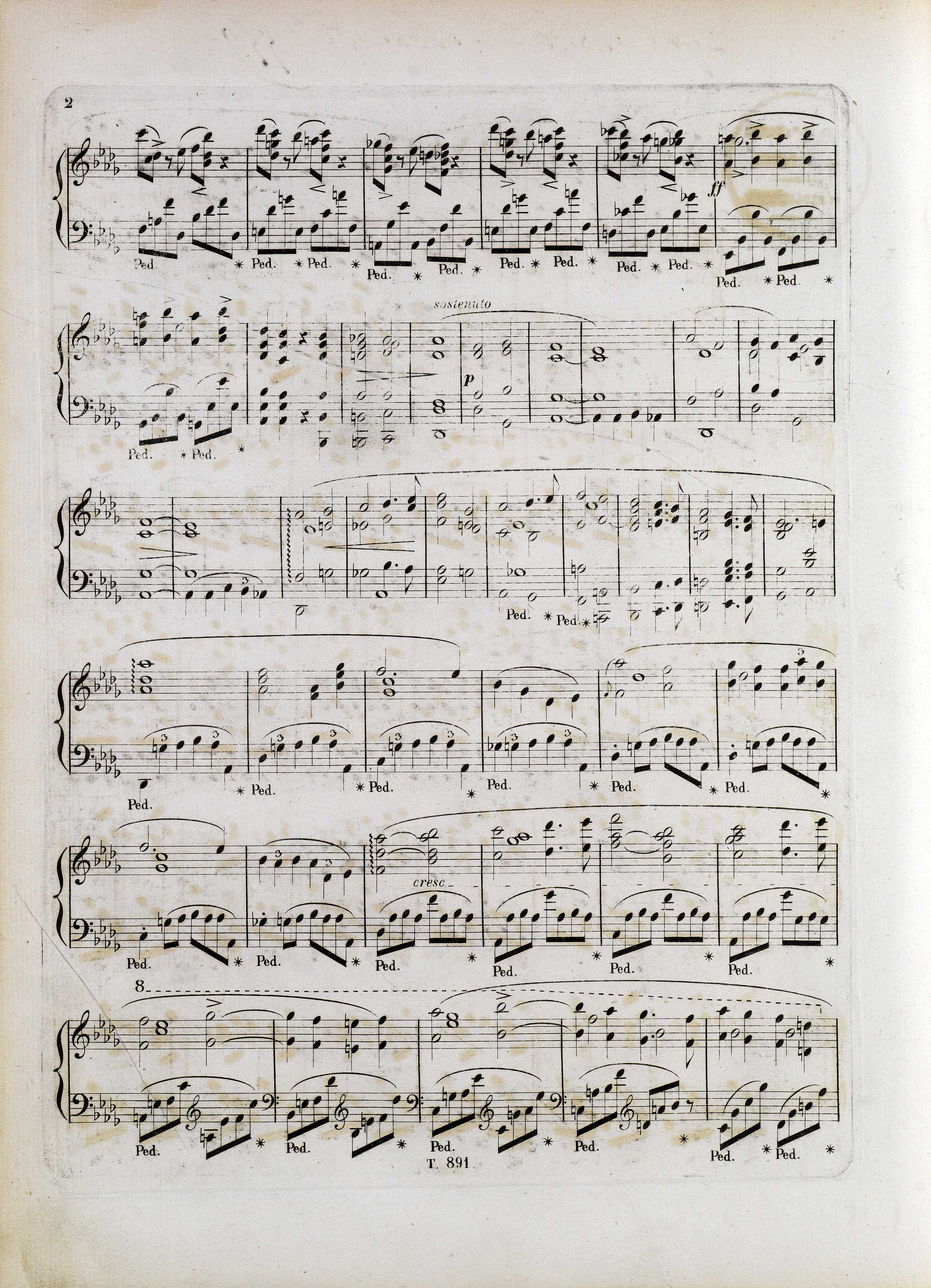



One can ponder how such different versions of slurring of this two-bar section occurred, since both the copyist and the engraver of FE had the same autograph in front of them. In terms of phrasing, none of the versions seems to be considerably better than the other one; however, the advantage of the marks of GC (→GE) is that they do not leave any part of the phrase without a slur. Due to the above reason, this is the version we give in the main text. Nevertheless, it is likely that it was already the notation of [A] that was inaccurate, e.g. due to certain corrections that each of the readers interpreted differently. Therefore, it seems reasonable to combine the most reliable elements of both source versions. According to us, it is the completeness of the slurring of GC and the continuity of the slur of FE that can be considered such; after all, the four-bar slur over b. 41-44, which are provided with a similar structure, is complete and continuous. We suggest the resulting two-bar slur as an alternative solution.
A more accurate analysis of the phrases in b. 41-44 and 45-48 allows for another version of the slurring:
- the first phrase consists of two tertiary cells, a
 1-f1 and g
1-f1 and g 1-e
1-e 1 –
1 –  ;
; - the second constitutes a variational development thereof; encompassing each cell with a slur results in the following slurring –
 ,
, - taking into account the rhythm of the harmonic changes, the cells of the second phrase could be separated in a different way –
 . This division, although partially compliant with the slurring of FE, is melodically less natural; moreover, it is at odds with the diminuendo in b. 46.
. This division, although partially compliant with the slurring of FE, is melodically less natural; moreover, it is at odds with the diminuendo in b. 46.
We do not suggest these versions as variants, since the division of the slurs between b. 46-47 is confirmed in all sources.
Compare the passage in the sources »
category imprint: Differences between sources
issues: Inaccuracies in FE, EE inaccuracies
notation: Articulation, Accents, Hairpins


